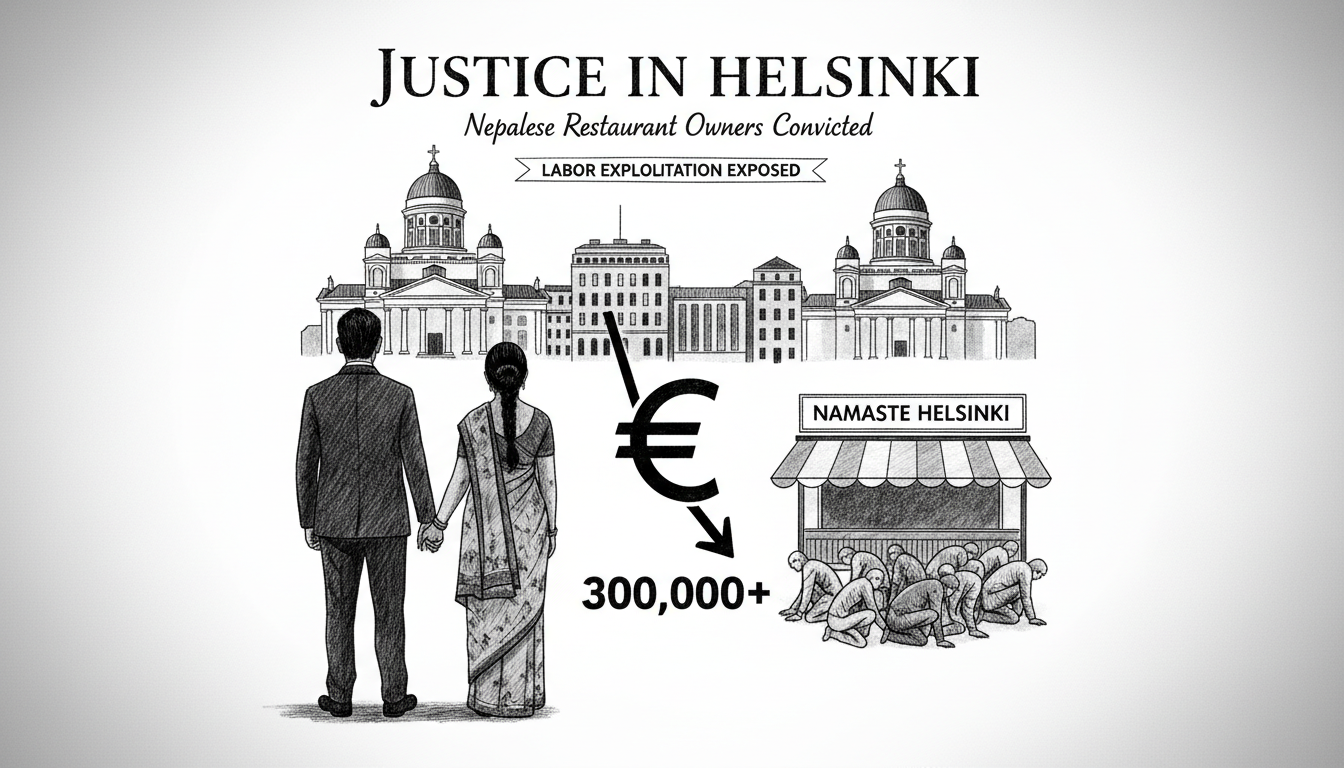A Helsinki appeals court has upheld human trafficking convictions against prominent Nepalese restaurant owners Devi and Manju Sharma. The couple received one year and eight months of conditional prison sentences for exploiting domestic workers and kitchen staff. They must pay over 300,000 euros in compensation to their victims.
The case represents one of Finland's most significant human trafficking prosecutions involving restaurant industry workers. The Sharmas were convicted specifically for human trafficking against a domestic worker and aggravated extortion against a chef.
Court documents reveal disturbing details about the exploitation. The domestic worker labored from early morning until late evening for just 300 euros monthly, with payments sent directly to her husband in Nepal. The court described the amount as "offensively small" and noted the Sharmas essentially obtained a free worker.
The woman's daily life consisted almost entirely of work as a servant. Sharma family members monitored her phone communications and controlled her bank access. She came from extreme poverty and lacked basic knowledge about Finnish society or worker rights.
The chef faced similar exploitation at the couple's Himalaya restaurant on Helsinki's Ratakatu street. He worked excessively long hours with minimal days off for years. Court records indicate this affected his mental capacity to plan life changes.
Both victims depended completely on the Sharmas, who leveraged their powerful position within Helsinki's Nepalese community. The chef feared he would never work in another Nepalese restaurant if he fell out of favor with the Sharmas. This fear proved justified when he lost his job after complaining.
The legal process stretched over six years since initial police reports in 2017. Five witnesses suddenly changed their testimony during the appeal process, all presenting identical favorable stories for the Sharmas. The court found this coordination suspicious and viewed it as supporting the prosecution's case.
Devi Sharma holds particular significance as one of Finland's pioneering Nepalese restaurateurs. He claims to have brought over 1,500 cooks to Finland through the years and established multiple restaurants including Himalaya, Lali Gurans, Gurkha and Yeti Nepal.
Despite nominally stepping back from managing Himalaya and Gurkha restaurants, the Sharmas maintain close connections. Himalaya's ownership transferred to two Nepalese men described in court documents as Devi Sharma's assistants. Gurkha's responsible persons include Devi Sharma's sister and her husband.
This case highlights vulnerabilities facing migrant workers in Finland's restaurant industry. Workers arriving from impoverished backgrounds often lack knowledge about Finnish labor laws and depend entirely on their employers. The substantial compensation awarded recognizes both financial exploitation and psychological suffering endured by the victims.
Finnish courts demonstrated serious commitment to combating labor exploitation through this ruling. The message to restaurant owners is clear: exploiting vulnerable workers carries severe legal consequences regardless of community standing or business success.

